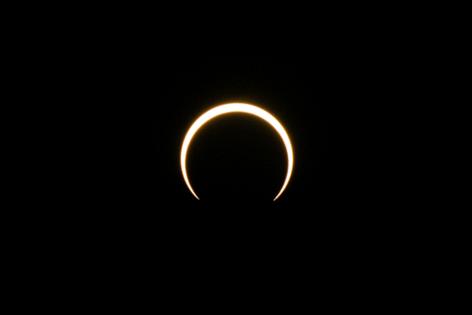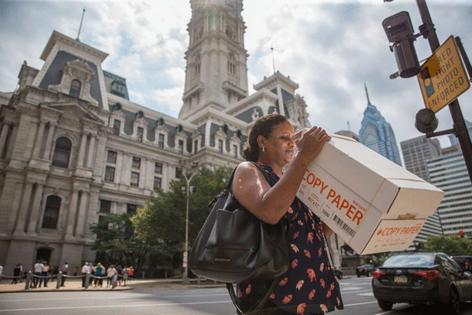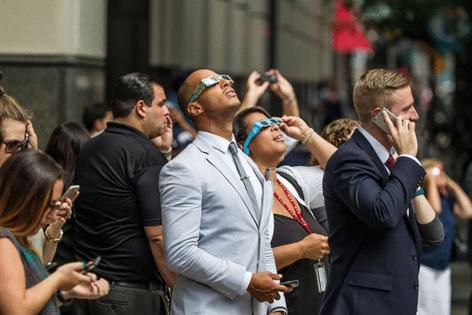During a solar eclipse, some Indigenous groups believe it's not just your eyes that need protecting
Published in Science & Technology News
PHILADELPHIA — The last time a total solar eclipse cast its shadows across the United States in August 2017, Jenée Chizick-Agüero, the founder and publisher of Motivos magazine, was pregnant with her son.
There was a viewing party in the parking lot outside Esperanza, a nonprofit on North 5th Street, and Chizick-Agüero was determined to go. In a total solar eclipse, the moon aligns up between the earth and the sun, temporarily blocking the sun's light and turning day into nearly night, in some places.
But first, the Fishtown resident had to negotiate with some strong cultural beliefs of her husband, Jorge Arturo Agüero, and his family, who are Costa Rican.
Both Jorge Agüero and his mother, Nereida Esquivel, who still lives in Costa Rica, were worried about Chizick-Agüero catching a glimpse of the eclipse while pregnant.
"His mom covered herself in black clothing during the 1991 eclipse, when [she] was pregnant with his younger sister," she said.
Her mother-in-law told her she had worn all black to guard against her baby being born with a birthmark.
By the 2017 eclipse, Chizick-Agüero, who loved science, was all set to go out to watch it. Her own child would be born one month later. "But my husband said, 'No, you can't do this. It might jeopardize our son,' " Chizick-Agüero recalled.
That's when Chizick-Agüero learned that people in Costa Rica, especially the areas where Indigenous beliefs are strong, have customs about what pregnant women should do during a solar eclipse.
The 2017 eclipse was the first to be seen in a broad sweep across the country, from the Pacific to the Atlantic, in nearly a century, since June 1918. There had been an eclipse in February 1979, but that one was only visible in the Pacific Northwest of the U.S. through Canada.
So this was a major eclipse. Chizick-Agüero, born in the United States, had not grown up with myths about solar eclipses. She was adamant about watching it.
...continued
(c)2024 The Philadelphia Inquirer Distributed by Tribune Content Agency, LLC.












Comments